Search engine optimization (SEO), email, paid ads, and social marketing get most of the headlines when it comes to lead generation and customer acquisition. However, when implemented strategically, insurance telemarketing can be a powerful tool in your overall marketing strategy, fostering rapport through real-time conversation and human connection.
Table of Contents
In the following article, we’ll share how insurance telemarketing can drive leads, sales, and customer retention in the insurance industry. Here are 10 significant benefits of using insurance telemarketing for your sales outreach.
10 Insurance Telemarketing Benefits To Consider
1. Direct Customer Interaction
Telemarketing is a distinct sales channel. Unlike email or PPC ads, agents can use calls to build rapport with one-on-one conversations. These open communications let your sales agents answer questions, alleviate concerns, and set up appointments in real time while fostering trust, loyalty, and deeper customer bonds.
Harnessing a personal touch elevates the customer experience, which can directly impact conversions and customer retention. Direct interactions also offer immediate feedback, allowing outbound callers to sharpen their sales skills and quickly gauge interest levels among prospects.
2. Enhanced Lead Generation
When using telemarketing as a sales channel, you can precisely target ideal insurance leads. Agencies can focus on particular demographics, profiles, or needs, making qualifying and converting leads easier.
In one survey, one-third of claimants said they were dissatisfied with their most recent insurance claims experience. When you hone in on the right prospects who are willing to switch carriers, you can capture more leads and convert them into happy customers.
3. Cost-Effectiveness
Once you establish your lead pipeline and invest in sales training, insurance telemarketing can be a cost-effective way to generate revenue. A good sales agent can conduct several interactions each hour, which you can incentivize with commissions.
While important to your overall marketing strategy, organic marketing channels like SEO and email marketing can take time to bear fruit. Other channels, such as PPC ads, are quite costly. Indeed, the average Meta ad cost per conversion in the insurance industry is over $40.
4. Scalability of Campaigns
Another considerable benefit of telemarketing campaigns is that they can easily be scaled up or down based on seasonality, market changes, company objectives, and other factors.
You can adjust resource allocation in several ways. For example, you can widen or tighten your target audience, increase call volume, or change your messaging. Similarly, insurance agents can use data to fine-tune agent performance and unearth new and effective strategies.
Your sales outreach must be responsive and adaptable. Telemarketing offers insurance businesses maximum flexibility.
5. Complementing Other Marketing Channels
While individual marketing channels have their own advantages, an omnichannel approach helps you connect with a broader range of prospects via their preferred medium. Additionally, the customer journey requires several touchpoints, meaning the synthesis of digital marketing’s broad reach combined with telemarketing’s personal touch makes the difference.
Working telemarketing into your outreach adds a vital cog in your sales machine. For example, you could use PPC ads or SEO to capture leads and an email campaign to nurture prospects before following up with a telemarketing call to close the deal. At Neilson Marketing Services, we see the most success with clients who combine our services for maximum impact.
6. Regulatory Compliance and Trust
Like the insurance industry, complex regulations exist to provide consumer protection. Several frameworks prohibit unsolicited calls and deceptive practices, such as:
- The Telephone Consumer Protection Act (TCPA)
- The National Do Not Call (DNC) Registry
- The Telemarketing Sales Rule (TSR)
Observing these regulations is about more than mere compliance. It is an opportunity to boost trust and transparency with the consumer.
While unregulated telemarketing has a poor reputation in some quarters, you can take a more ethical approach with the following steps:
- Obtain consent for calls.
- Respect opt-out requests.
- Respect privacy and data regulations related to customer data.
- Ensure you make calls at reasonable times.
- Use precise targeting so your offers are relevant to your prospects.
7. Data Collection and Market Insights
Telemarketing conversations are a potential goldmine of data that will improve your operations. Real-time calls offer an opportunity to collect information like:
- Demographics and interests
- Customer objections
- Purchase intent
- Customer feedback
- Competitor insights
- Pain points
- Conversion rates and call metrics
When you compile this information, you’ll have data-driven insights in response to the market.
8. Overcoming Sales Objections in Real Time
In the last section, we discussed how to use telemarketing call data to collect customer objections. Yet, the real power of insurance telemarketing lies in the ability of your agents to respond to objections in real time.
As your sales agents get a flavor for common objections, they can formulate impactful responses. This process will help them set more appointments, drive conversion rates, boost customer satisfaction, and, most of all, positively affect your bottom line.
9. Immediate Results and Long-Term Relationships
Telemarketing offers a rare mix of short and long-term benefits. A solid telemarketing campaign allows you to gain immediate results, whether by generating leads and sales or getting feedback you can use to improve your operations.
While not every call will produce revenue-boosting conversions, these personalized interactions can foster strong relationships through ongoing engagement. These situations also work to retain clients or turn one-off buyers into repeat customers.
10. Boosting Efficiency With Scripted Interactions
Telemarketing scripts are a popular way to optimize the effectiveness of your outreach campaigns. Structuring your calls means agents deliver a consistent core message that you can hone over time until you hit the results you want. Additionally, a good script can do wonders for your agent’s confidence and call handling while reducing training time.
Of course, making your scripts too rigid can affect the personal touch that is so valuable in telemarketing. So, leave some room for customization based on demographics, interests, and the experience of your sales agents.
Conclusion: The Future of Telemarketing in Insurance
Insurance telemarketing is not going anywhere. It will continue to thrive because it produces results and offers a more personal way to connect with customers. As we move into the future, we expect the channel to benefit from AI augmentation, better data analytics, and closer ties with other marketing channels, like SEO and social media marketing.
Embracing technology will not be enough to stay ahead of the curve. Continuous innovation, investment in training, and awareness of telemarketing best practices are essential to achieving excellent ROI.
Insurance telemarketing is a powerful tool to have in your arsenal. However, most businesses lack the experience and know-how to drive results internally. If your agency could use more leads and conversions, reach out today to see how Neilson Marketing can help.
FAQ
How does telemarketing enhance lead generation for insurance?
Telemarketing allows agencies to precisely target ideal insurance leads based on specific demographics, profiles, or needs. This targeted approach makes qualifying and converting leads easier, particularly those dissatisfied with their current insurance providers.
Is insurance telemarketing cost-effective compared to other marketing channels?
Yes, insurance telemarketing can be cost-effective once a lead pipeline is established and sales training is provided. Telemarketing allows for multiple interactions per hour, which can be incentivized with commissions, unlike more expensive channels like PPC ads.
How does telemarketing complement other marketing channels?
Telemarketing adds a personal touch to digital marketing strategies. For example, leads captured through PPC ads or SEO can be nurtured via email campaigns and then closed with a telemarketing call.
What are the regulatory considerations for insurance telemarketing?
Telemarketing in the insurance industry must comply with regulations like the Telephone Consumer Protection Act (TCPA), the National Do Not Call (DNC) Registry, and the Telemarketing Sales Rule (TSR). Compliance includes obtaining consent for
